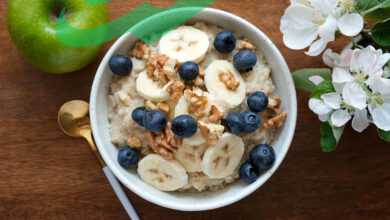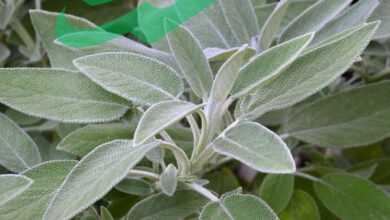Unlocking the Nutritional Value of Guava Leaves for Well-being
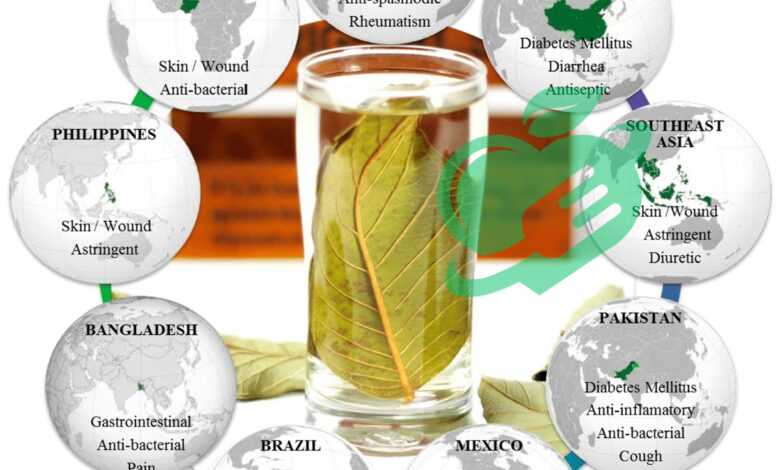
Overview of Guava Leaves
Guava leaves, often overshadowed by the fruit they produce, are treasure troves of health benefits. With a rich green hue and a slightly serrated edge, these leaves are not just aesthetically pleasing; they are a powerhouse of nutrients. Guava leaves are part of the guava tree ecosystem, which primarily thrives in tropical and subtropical regions and has been used for generations in various cultures for its medicinal properties. When one thinks of guava, the first image is usually of its delicious fruit. However, it has a history worth mentioning. exploring. They are rich in flavonoids, tannins, and other essential compounds that contribute to their diverse health benefits. These leaves have gained popularity in health circles, with many health enthusiasts touting their effectiveness in addressing various ailments. Moreover, the transition from ancient uses to modern applications showcases our ongoing quest for natural remedies.
Historical Uses of Guava Leaves in Traditional Medicine
The use of guava leaves dates back centuries, with historical records indicating their significance in traditional medicine practices across numerous cultures. For instance, in regions like Latin America and parts of Asia, the leaves have been employed as remedies for digestive issues, skin infections, and even as a natural anti-inflammatory agent. Some notable historical applications include:
- Digestive Health: Guava leaves were often brewed into teas to alleviate diarrhea and constipation, taking advantage of their astringent properties.
- Wound Healing: The leaves have been crushed and applied topically to wounds, promoting faster healing and reducing the risk of infection.
Not only do these traditional practices highlight the power of guava leaves, they also reflect a global recognition of their potential. Over time, scientific research has begun to uncover the phytochemical properties that make them beneficial, bridging the gap between folklore and evidence-based conclusions. Incorporating them into one’s daily regimen may provide a range of health benefits, cementing their place in holistic wellness. As we delve deeper into the nutritional aspects and potential applications, the benefits of the leaves in a modern wellness routine have become increasingly compelling.
Read also: Dry Yogurt: Your New On-the-Go Essential

Nutritional Value of Guava Leaves
Understanding the nutritional value of guava leaves is crucial as it highlights its health benefits. These leaves are not just a companion to the fruit but have a unique profile that can effectively nourish the body. They are rich in a variety of vitamins and minerals and are an excellent addition to a balanced diet. Some of the key nutrients found in them include:
- Vitamin C: A potent antioxidant known for boosting the immune system and promoting healthy skin.
- Vitamin A: Crucial for eye health and maintaining good vision.
- B Vitamins: These include B1 (Thiamine), B2 (Riboflavin), and B3 (Niacin), which are essential for energy production and brain function.
- Minerals: Guava leaves are also sources of important minerals such as potassium, calcium, and magnesium, which play vital roles in various bodily functions.
Imagine sipping a warm cup of tea made from fresh guava leaves after a long day. Not only does it provide comfort, it also provides a range of nutrients that can help you recover and rejuvenate. This unique combination of vitamins and minerals makes it a comprehensive health ally.
Antioxidant Properties
One of the most important features of guava leaves is their high antioxidant content. Antioxidants are compounds that help neutralize free radicals, which are unstable molecules that can cause oxidative stress and lead to chronic diseases. Specific antioxidants found in them include:
- Quercetin: Known for its anti-inflammatory properties, quercetin can help reduce swelling and pain in the body.
- Gallic Acid: This compound has been studied for its potential in fighting cancer cells and promoting heart health.
- Flavonoids: These are abundant in guava leaves and are linked to reduced risk of various diseases while promoting overall well-being.
Adding guava leaves to your diet can be a simple yet powerful way to boost your antioxidant intake. A personal anecdote worth sharing is when a friend of mine suffered from recurring colds and decided to make guava tea regularly. Not only did they notice fewer instances of getting sick, they also reported feeling more energetic. The powerful combination of vitamins, minerals, and antioxidants undoubtedly contributes to its reputation as a superfood. As we continue to explore the health benefits of guava tea in the next section, it becomes clear how these leaves offer tremendous value beyond their great taste.
Read also: The Power of Clove Tea: Flavor and Health Combined
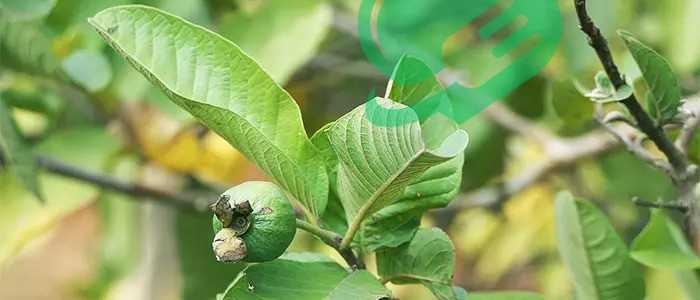
Health Benefits of Guava Leaves Tea
The digestive benefits of guava leaf tea are truly amazing. Many individuals find themselves struggling with digestive issues such as bloating, constipation, or occasional diarrhea. It can provide gentle and effective support in these situations. One of its popular aspects is its astringent properties, which help to strengthen loose bowels, making it a popular remedy for diarrhea. Additionally, the leaves are rich in dietary fiber, which promotes healthy digestion. Here are some of the key ways guava leaf tea supports digestive health:
- Antimicrobial Effects: Guava leaves possess antimicrobial properties that can help combat pathogens in the gut, contributing to a healthier digestive tract.
- Reduced Inflammation: The anti-inflammatory compounds in guava leaves can soothe the gastrointestinal tract lining, alleviating discomfort and promoting smoother digestion.
- Menstrual Health: Many women find that guava leaf tea not only helps with digestive issues but can also ease menstrual cramps, providing a dual benefit.
A personal story comes to mind – one of my relatives had chronic gastrointestinal discomfort. After incorporating guava leaf tea into their routine, they experienced noticeable improvements in digestion and overall comfort. It’s a simple yet impactful addition to anyone’s wellness repertoire.
Blood Sugar Management
Guava leaf tea has also gained a lot of attention for its ability to control blood sugar. This may be especially beneficial for people with diabetes or those looking to stabilize their blood sugar levels. Research suggests that the phytochemicals in it may help improve insulin sensitivity and regulate glucose levels. Here’s how they may play a role in blood sugar control:
- Inhibition of Alpha-Glucosidase: This enzyme works to convert carbohydrates into glucose in the body. Guava leaves may inhibit this function, leading to lower blood sugar spikes after meals.
- Improved Metabolism: Drinking guava leaf tea may enhance metabolic processes, contributing to reduced blood sugar levels over time.
- Natural Remedy: Many people prefer natural solutions for managing their health, and guava leaves offer a holistic approach.
I know a gentleman who struggled to keep his blood sugar levels in check. After starting a daily regimen of guava leaf tea, he reported significant improvements, allowing him to better manage his diabetes without relying solely on medication. Incorporating guava leaf tea into one’s daily routine not only supports digestive health but also provides a sweet solution for blood sugar management. As we dive deeper into how to prepare guava leaf tea, we can discover just how easy it is to reap these benefits.
Read also: How to Treat and Soothe Nettle Sting
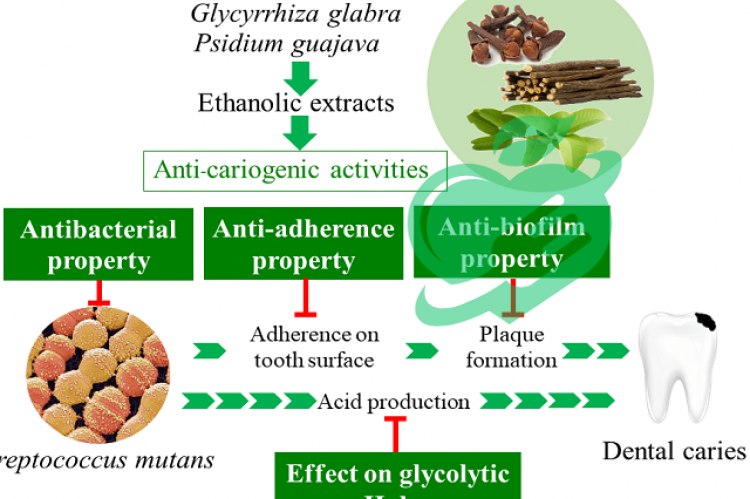
Harvesting and Drying Guava Leaves
Now that we’ve discovered the health benefits of guava leaf tea, it’s time to learn how to make it ourselves. The first step in this journey is harvesting and drying the leaves, which can greatly enhance the flavor and strength of the tea. When harvesting the leaves, keep these tips in mind:
- Choose Young Leaves: Fresh, young leaves are ideal as they tend to be more tender and potent. Look for leaves that are vibrant green and free of browning or wilting.
- Morning Harvest: Early morning is the best time to harvest leaves. This is when they have the highest moisture content, but before the sun depletes them of essential oils.
- Wash and Dry: After harvesting, gently wash the leaves to remove any dirt or insects. Place them on a clean kitchen towel or paper towel to dry.
Once the leaves are washed, it’s time to dry them. You can do this by:
- Air Drying: Bundle a few leaves together and hang them in a warm, dry place, away from direct sunlight. It usually takes about a week for them to dry completely.
- Oven Drying: If you’re short on time, you can use an oven. Set it to the lowest temperature, place the leaves on a baking sheet, and monitor them closely to avoid burning. It typically takes about two hours.
This process not only preserves the leaves but intensifies their flavors, creating a rich and aromatic tea.
Brewing Techniques and Recipes
Once you have your dried guava leaves ready, brewing a delightful cup of guava leaf tea is simple and rewarding. Here’s how to make it: Basic Guava Leaf Tea Recipe:
- Ingredients:
- 5-6 dried guava leaves
- 2 cups of water
- Honey or lemon (optional)
- Instructions:
- Start by boiling the water in a pot.
- Add the dried guava leaves once the water is boiling.
- Reduce the heat and let the leaves steep for 10-15 minutes, depending on your desired strength.
- Strain the leaves and pour the tea into a cup.
- Sweeten with honey or lemon if desired.
Experiment with Flavors: Feel free to customize your tea! Adding ingredients like ginger, mint, or even a cinnamon stick can elevate the experience. Many people in my group of friends have enjoyed guava leaf tea not just for its health benefits but for its soothing aroma and gentle flavor. Now you have a delicious and nutritious beverage at your fingertips, ready to be sipped whenever you need a boost. As you explore the world of guava leaves, the next step is discovering how to incorporate them into your wellness routine, which we will delve into shortly.
Read also: How to Make Hearty Barley Beef Soup at Home
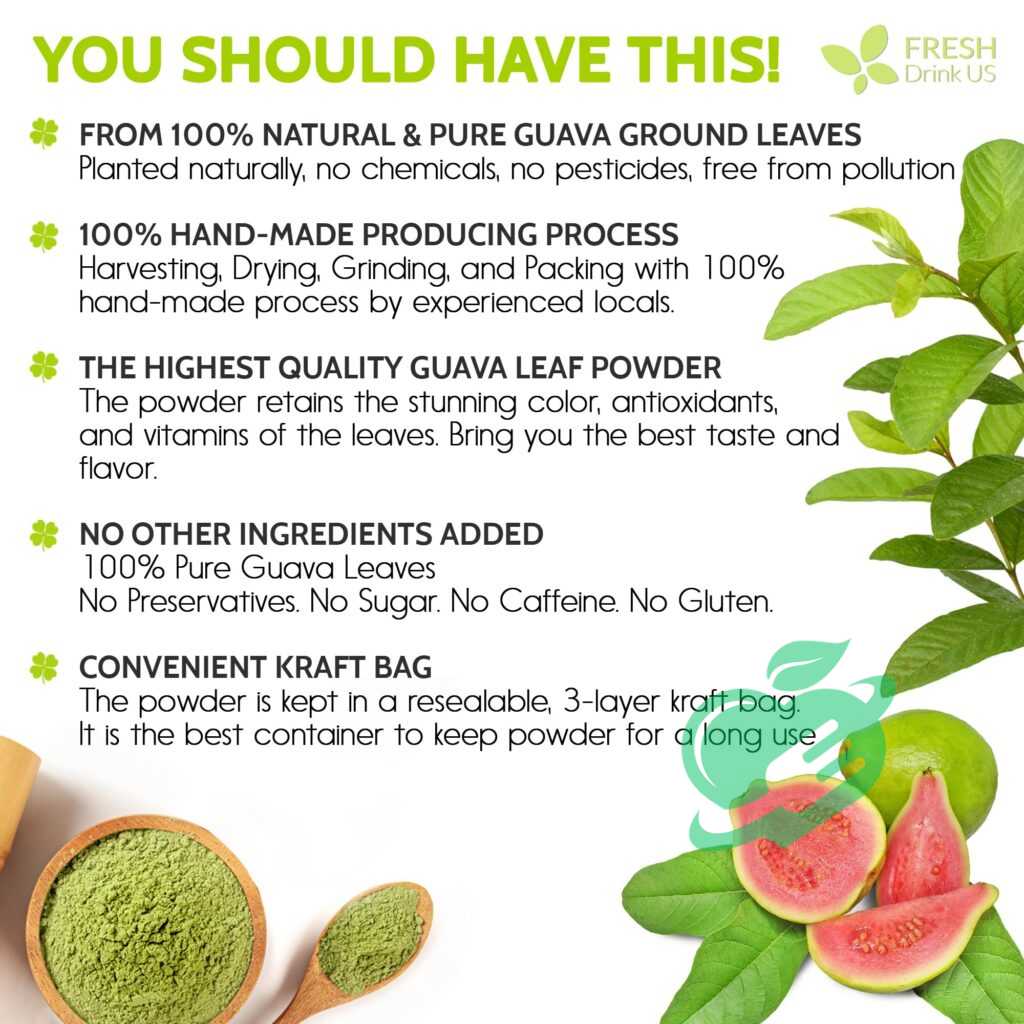
Incorporating Guava Leaves into Your Wellness Routine
Now that you have a great experience making guava leaf tea, it’s time to explore how guava can enhance your skin and hair care routine. Its rich nutrient content and antioxidant properties make it exceptionally beneficial for both skin and hair. One popular way to use it as a natural skin care remedy is to use it as a natural skin care remedy. Here’s how:
- Anti-Acne Treatment: The antimicrobial properties of guava leaves can help combat acne. You can create a simple paste by grinding fresh or dried leaves with a little water and applying it directly to the affected areas. Leave it on for about 20 minutes before rinsing. Many users report clearer skin after consistent use.
- Soothing Irritations: If you have sensitive skin, a guava leaf infusion can be soothing. Boil the leaves, cool the solution, and apply it as a gentle toner.
For haircare, guava leaves can also work wonders:
- Hair Rinse: A guava leaf infusion can be used as a natural hair rinse. Simply steep a handful of dried leaves in boiling water, let it cool, strain, and use it as a final rinse after shampooing. This helps strengthen hair strands, reduce dandruff, and promote shine.
- Preventing Hair Loss: Regular use of guava leaf extract in your routine may improve blood circulation on the scalp, potentially reducing hair loss.
Many in my circle have been thrilled with the results after incorporating guava leaf treatments into their beauty regimens, sharing their glowing assessments of healthier skin and hair.
Potential Side Effects and Considerations
Although these leaves offer many benefits, it is important to be aware of potential side effects and considerations. Most people tolerate guava leaves well; however, individual reactions may vary. Some key considerations include:
- Allergic Reactions: If you have allergies to guava, be cautious. It’s best to conduct a patch test on your skin before applying any guava leaf mixture.
- Dosage Awareness: When consuming guava leaves as tea or as supplements, moderation is key. Excessive consumption may lead to digestive issues for some individuals.
- Pregnancy and Nursing: Pregnant or breastfeeding women should consult a healthcare professional before incorporating guava into their diet, as there is no extensive research confirming its safety in large amounts during these times.
Keeping these factors in mind will ensure that your journey with guava leaves remains beneficial and enjoyable. With the right applications, these leaves can certainly enhance your wellness routine, and in the next section, we will explore the scientific research behind these claims, paving the way for informed decisions about their use.
Read also: Damiana Leaves Benefits You Need to Know
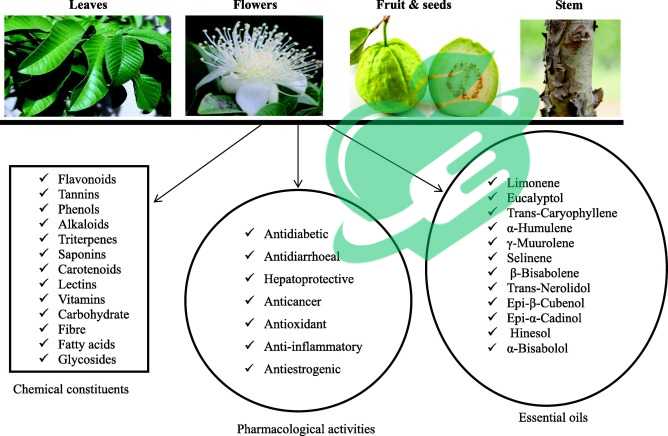
Scientific Evidence Supporting Health Claims
As we continue our exploration of guava leaves, it’s vital to look at the scientific evidence that supports the numerous health claims associated with these remarkable leaves. While traditional uses are rich in anecdotal support, research is beginning to validate many of these benefits through rigorous studies. Several key findings have emerged:
- Antidiabetic Properties: Research has shown that guava leaves may help manage blood sugar levels effectively. A study published in the Journal of Ethnopharmacology found that guava leaf extract significantly reduced blood glucose levels in diabetic rats, indicating a potential for aiding in diabetes management in humans.
- Digestive Health: Studies on the antidiarrheal properties of the leaves have shown their effectiveness in reducing intestinal inflammation and fighting pathogens. A study on guava leaf extracts highlighted their ability to inhibit the growth of harmful bacteria and support digestive health..
- Antioxidant Capacity: Guava leaves are rich in antioxidants, such as quercetin and gallotannins, which combat oxidative stress. Research has identified their role in preventing chronic diseases, including certain cancers and cardiovascular issues.
Personal experiences echo these findings. Several friends who have integrated guava leaf tea into their diets have reported improvements in their digestive health and sustained energy levels, supporting the notion that scientific research is catching up to these longstanding health traditions.
Future Potential and Emerging Trends
The future of guava leaves in the health and wellness space is exciting, with emerging trends indicating a growing interest in natural remedies. Here are some areas where they are expected to make an impact:
- Functional Foods: As consumers increasingly seek natural alternatives to pharmaceuticals, guava leaves are being incorporated into functional foods and health supplements. This trend highlights the shift towards preventive health solutions and wellness-focused diets.
- Skincare Innovations: The beauty industry is witnessing a surge in natural ingredients. Guava leaves’ antimicrobial and anti-inflammatory properties suggest potential in developing skincare products targeting acne and oily skin.
- Sustainable Practices: With the advent of sustainable agriculture, growing guava trees and their leaves can contribute positively to local ecosystems. Their use promotes waste reduction, as parts of the plant that would otherwise be discarded are given new life in consumer products.
The convergence of scientific research and traditional wisdom is paving the way for broader acceptance and integration into health models. As this field expands, we must stay abreast of ongoing research developments and emerging products related to it, to ensure that we can harness its full potential in our journeys towards wellness.
Read also: The Hair Health Diet: How to Eat Your Way to Gorgeous, Strong Hair
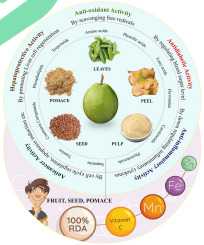
Summary of Benefits
As we journey through the fascinating world of guava, it’s clear that these humble leaves pack a punch of nutrients and offer a wide range of health benefits. From exploring their rich history in traditional medicine to the many ways they can enhance our wellness routines, they’ve proven to be more than just a guava fruit supporter. In short, some notable benefits include:
- Digestive Health Support: Guava leaves have shown efficacy in managing digestive issues—helping to alleviate diarrhea, promoting gut health, and minimizing inflammation.
- Blood Sugar Regulation: The ability of these leaves to help control blood sugar levels makes them a valuable ally for people with diabetes or those looking for healthier alternatives.
- Nutrient-Rich Profile: Guava leaves are rich in vitamins, minerals, and antioxidants. They contribute significantly to overall health, supporting the immune system and skin health.
- MULTIPLE APPLICATIONS: Whether you enjoy it as a tea, use it in your skincare routine, or experiment with hair care applications, it’s a versatile addition to your wellness arsenal.
These benefits highlight the importance of integrating guava leaves into daily routines for holistic health management.
Recommendations for Consumption and Use
Incorporating guava leaves into your lifestyle can be both enjoyable and beneficial. Here are some recommendations for maximizing their advantages:
- Daily Tea: Aim to enjoy guava leaf tea 2-3 times a week. This routine can help sustain the positive impacts on digestion and blood sugar levels. Consider forming a mini ritual around your tea breaks—perhaps adding calming music or meditation for a holistic experience.
- Skincare Regimen: For those interested in skincare, consider using guava leaf infusions as a toner or as a face mask. Doing a patch test first will ensure it’s suitable for your skin type.
- DIY Hair Treatment: If you’re battling dandruff or want to enhance your hair’s shine, try a guava leaf rinse after shampooing. Regular use may lead to noticeable improvements.
- Moderation is Key: While guava leaves offer great benefits, moderation is essential to avoid adverse reactions. Always listen to your body and consult a healthcare professional when making significant changes to your health regimen.
Frequently asked questions
What are the benefits of boiling guava leaves to drink?
Guava leaf tea might assist in preventing fluctuations in blood sugar and alleviate symptoms in individuals with type 2 diabetes. A review conducted in 2010 analyzing evidence from clinical trials and animal research indicates that guava leaf tea could enhance insulin sensitivity and reduce blood sugar levels. 1.
What are 10 benefits of guava?
1. Improving digestion
Guava is a fiber-rich fruit that promotes bowel movements and enhances digestion. Consuming it with the skin helps alleviate stomach acidity, making it an effective remedy for gastric and duodenal ulcers.
2. Boosting immunity
Guava is a fruit that is highly concentrated with vitamin C, a nutrient that enhances the body’s natural defenses. It can enhance immune system performance and increase the body’s resistance to viruses and bacteria.
3. Improving diarrhea
Certain scientific research suggests that guava leaf extract possesses astringent, antispasmodic, and antimicrobial qualities, which can aid in alleviating both acute and chronic diarrhea, as well as abdominal pain and the microbes causing diarrhea. It can be taken as a tea to obtain these benefits.
4. Promoting weight loss
A single guava contains approximately 54 calories and can be included in a weight loss plan as either a dessert or a snack. Additionally, it is high in pectin, a kind of fiber that helps you feel full and organically curbs your appetite.
5. Promoting skin health
Consuming pink or red guava is beneficial for the skin due to its high lycopene content, an antioxidant that helps shield the skin from damage inflicted by the sun’s UV rays. It also helps control the levels of free radicals in the body, thereby reducing the risk of early skin aging.
Moreover, guava is rich in vitamin C, which is a vital micronutrient for collagen production in the body. Collagen is an essential protein that helps preserve the skin’s elasticity and firmness.
6. Lowering LDL
Guava is high in soluble fiber, including pectin, as well as vitamin C. Soluble fiber helps remove cholesterol via stool, which decreases its absorption and lowers blood levels.
Furthermore, guava is rich in antioxidants, which assist in preventing the oxidation of LDL cholesterol and support the maintenance of healthy HDL cholesterol levels.
7. Regulating blood pressure
Guava is high in antioxidants, particularly polyphenols, that aid in reducing blood pressure by relaxing blood vessels and enhancing vascular function. Additionally, it has potassium, a mineral that facilitates the elimination of sodium through urine, further contributing to blood pressure regulation.
8. Reducing menstrual cramps
Research suggests that guava leaf extract may help alleviate the severity of menstrual cramps due to its pain-relieving properties.
9. Preventing and improving anemia
Guava contains vitamin C, which helps enhance the absorption of iron in the intestines. As a result, it is advisable to consume this fruit alongside plant-based sources of iron, particularly if the goal is to prevent anemia and alleviate its symptoms.
10. Regulating blood sugar
Guava is high in fiber, which aids in regulating blood sugar levels. Additionally, the leaves of this fruit contain a wealth of polyphenols and triterpenes—substances that assist in the management of glycogen metabolism.2.
Is it OK to drink guava leaves every day?
Consume guava leaf tea each day to enjoy its health advantages, including better digestion, regulation of blood sugar levels, and enhanced immune support. 3.
Why is guava called the poor man’s apple?
Guava is commonly known as the “poor man’s apple” due to its widespread availability and affordable price in various regions, making it a nutritious option for individuals on a tight budget. 4.
Because your health is the most valuable thing you have and the most precious thing we care about, we always recommend that you consult your specialist doctor in everything related to your health and daily life. Everything we provide here is for awareness purposes only and does not replace consulting a doctor. Every person has a unique condition that deserves special care, and we are here by your side, working passionately to provide the information you need. Always follow us, because we write for you with love and sincerity to remain a source that inspires you with hope and supports you on your journey towards a better life.
- medicalnewstoday ((↩))
- tuasaude ((↩))
- redcliffelabs ((↩))
- quora ((↩))

